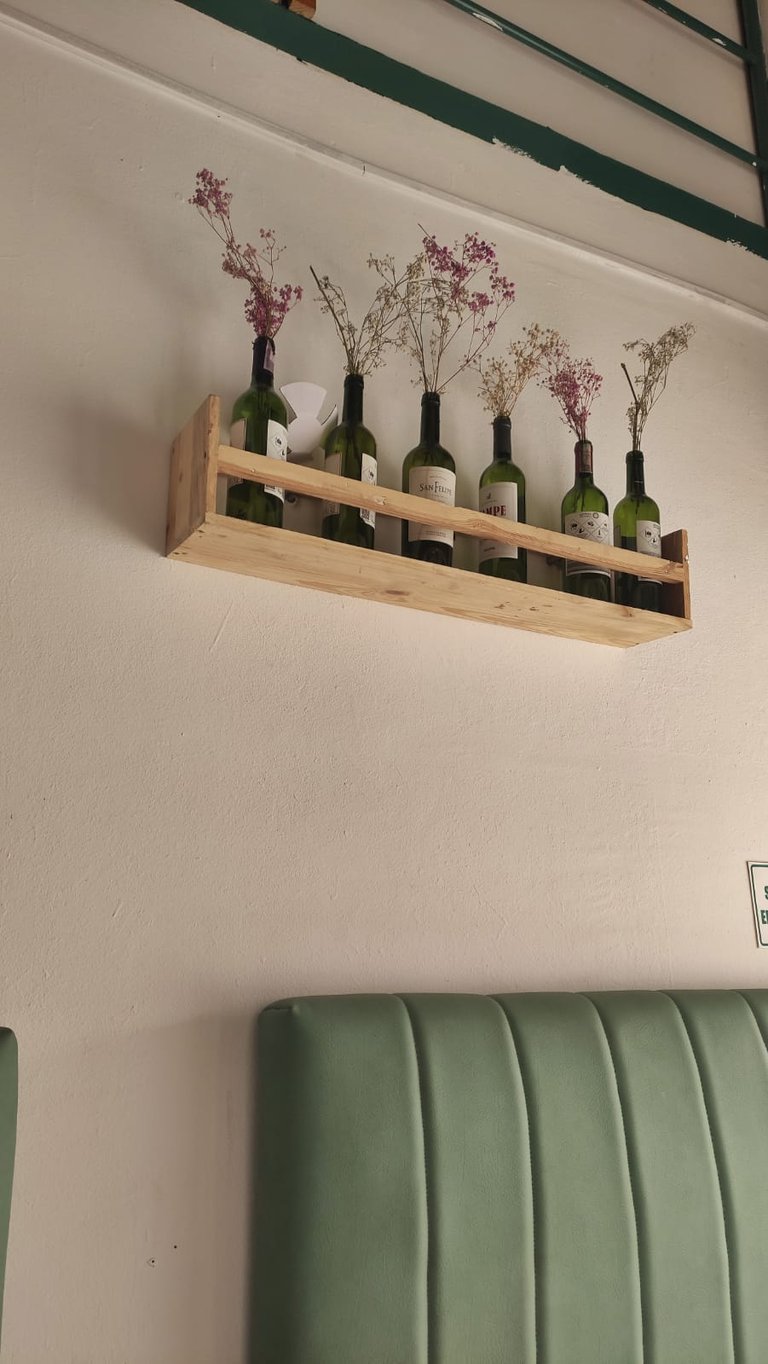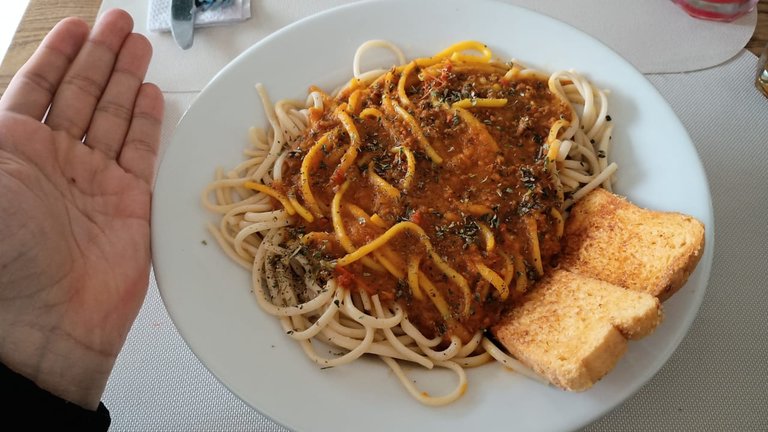Análisis de la competencia, el timón de un negocio para mantener un buen rumbo [ESP-ENG]

Durante dos años hemos emprendido como familia en un negocio de comida.
La cantidad de cambios, mejoras y ajustes que hemos realizado para que el negocio crezca y se mantengan no caben en un único post. Para mis papás y para mi es el primer negocio físico que tenemos, mi esposo tenía algo más de experiencia con esto pero no en el área de la comida, así que todos estamos expuestos a un continuo aprendizaje. Esto nos ha traído crecimientos, no solo en el negocio sino también como familia, e incluso individualmente.
He aprendido mucho de mi esposo en cuanto a los negocios se refiere, tanto físicos como digitales. Cada uno es un mundo y requiere de unas habilidades, estrategias y recursos específicos. Me gustaría centrarme hoy en una de esas áreas en las que hemos trabajado y he visto cómo trae resultados. Se trata del Análisis de la Competencia. Veamos rápidamente una definición:
El análisis de la competencia es una herramienta clave para entender el mercado y mejorar la posición de una empresa. Consiste en evaluar a los competidores directos e indirectos para identificar sus fortalezas, debilidades, estrategias y tendencias, para que una empresa tome decisiones más informadas.
El negocio inició siendo únicamente un negocio de "comida rápida" de arepas rellenas. Desde su comienzo los clientes han estado encantados con nuestro menú, la atención, la disposición, limpieza y ambiente del restaurante. Por allí todo bien, sin embargo, empezamos a notar cómo otros negocios de comida se mantenían más llenos que el nuestro, durante los mismos horarios. Teníamos una idea de por qué ocurría este fenómeno y es que básicamente estos negocios ofrecían un almuerzo, "menú ejecutivo" como lo conocemos en Venezuela a muy bajo costo. Teníamos una competencia muy fuerte principalmente en cuanto a precios, y por supuesto, los clientes del día a día necesitan abaratar sus costos.
Ante este primer reto hubiésemos podido quedarnos de brazos cruzados, diciendo que jamás adaptaríamos nuestros menú para tener pocas ganancias y más trabajo, sin embargo, decidimos adaptarnos al mercado e introducir nuestro propio menú de almuerzos. A nuestro alrededor, como he dicho antes, varios locales ofrecían lo mismo. ¿Cómo podíamos diferenciarnos? Decidimos realizar entonces un análisis de la competencia. Digamos que anteriormente lo hacíamos de forma muy empírica, casualmente íbamos a un restaurante y lo comparábamos con el nuestro, aprendíamos algunas cosas. Decidimos hacerlo ahora de forma más formal. Empezamos a evaluar así diferentes aspectos de los restaurantes que nos proponíamos visitar:
- Relación precio/calidad
- Porción de las comidas (jugo, plato fuerte, sopa)
- Atención del personal
- Limpieza y decoración del restaurante
- Ambiente (Música, disposición de las mesas, relación entre los empleados)

Nunca jamás hemos sido clientes molestos. Entendemos que nos atienden humanos y si lo que queríamos no es lo que recibimos lo conversamos amablemente o simplemente lo aceptamos. Sin embargo, durante el análisis de la competencia si nos poníamos un poco más críticos con todo (sin decirlo a los empleados, sólo lo conversábamos entre nosotros). Mi esposo me decía "me siento raro haciendo esto" y yo también me sentía así, pero era necesario, no solo para criticar la competencia sino para aprender de ella, adoptar lo que nos funcionara a nosotros y corregir los posibles errores que ellos estaban cometiendo.

Los clientes nos han dado ese feedback del trabajo que hemos realizado. "Me encanta el ambiente, se puede conversar sin una música molesta" "Qué agradable atención, se nota que son venezolanos" "Me gustan las porciones, en otro lugar me dan solo huesos ¿creen que soy perro"? Con respecto a esto último ha sido muy interesante pues ciertamente tenemos pocas ganancias con los almuerzos, pero siempre hemos querido que sean buenos almuerzos, no vender cualquier cosa. Y esto, que podría considerarse una pérdida en algunos lugares, para nosotros no lo es pues los almuerzos son un primer gancho, y la gente siempre regresa a probar nuestras arepas, que es nuestro producto estrella pues requiere menos trabajo y da una mayor ganancia. Pero quizás esta estrategia sea interesante comentarla en otra públicación.
El análisis de la competencia variará dependiendo del rubro o servicio ofrecido. Me encantaría que me comenten, como emprendedores, sus experiencias sobre este tema, o incluso como clientes, ¿cómo son esas comparativas de los lugares que visitan? ¿qué factores toman principalmente en cuenta para regresar a un negocio?
Gracias por su lectura!
Referencias Biliográficas:
Definición de Análisis de la Competencia. Documento en línea disponible en el siguiente enlace

For two years we have been in business as a family in a food business.
The amount of changes, improvements and adjustments we have made to make the business grow and be maintained do not fit in a single post. For my parents and I this is the first physical business we have owned, my husband had a little more experience with this but not in the food area, so we are all exposed to continuous learning. This has brought us growth, not only in the business but also as a family, and even individually.
I have learned a lot from my husband when it comes to business, both physical and digital. Each one is a world and requires specific skills, strategies and resources. I'd like to focus today on one of those areas that we've worked on and I've seen it bring results. It is Competitive Analysis. Let's quickly look at a definition:
*Competition analysis is a key tool for understanding the market and improving a company's position. It consists of evaluating direct and indirect competitors to identify their strengths, weaknesses, strategies and trends, so that a company can make more informed decisions.
The business started out as a "fast food" business of stuffed arepas. Since its inception customers have been delighted with our menu, service, layout, cleanliness and ambiance of the restaurant. However, we began to notice how other food businesses were more crowded than ours, during the same hours. We had an idea of why this phenomenon was occurring and it was that basically these businesses offered a lunch, "executive menu" as we know it in Venezuela, at a very low cost. We had a very strong competition mainly in terms of prices, and of course, day-to-day customers need to lower their costs.
Faced with this first challenge, we could have stayed with our arms crossed, saying that we would never adapt our menu to have little profit and more work, however, we decided to adapt to the market and introduce our own lunch menu. All around us, as I said before, several places were offering the same thing, so how could we differentiate ourselves? We decided to conduct a competitive analysis. Let's say that previously we did it in a very empirical way, we would casually go to a restaurant and compare it with ours, and learn a few things. We decided to do it now in a more formal way. So we started to evaluate different aspects of the restaurants we intended to visit:
- Price/quality ratio.
- Portion of the meals (juice, main course, soup)
- Attention of the staff
- Cleanliness and decoration of the restaurant
- Atmosphere (music, arrangement of the tables, relationship between employees)

We have never ever been annoying customers. We understand that we are served by humans and if what we wanted is not what we received we politely discuss it or simply accept it. However, during the competitor analysis we did get a little more critical of everything (without saying it to the employees, we just talked it over amongst ourselves). My husband would say "I feel weird doing this" and I felt that way too, but it was necessary, not only to criticize the competition but to learn from it, adopt what worked for us and correct possible mistakes they were making.

The clients have given us that feedback on the work we have done. "I love the atmosphere, you can talk without annoying music" "What a nice attention, you can tell they are Venezuelan" "I like the portions, in another place they give me only bones do they think I'm a dog"? Regarding the latter, it has been very interesting because we certainly have little profit with the lunches, but we have always wanted them to be good lunches, not just selling anything. And this, which could be considered a loss in some places, is not for us because the lunches are a first hook, and people always come back to try our arepas, which is our star product because it requires less work and gives a higher profit. But perhaps this strategy would be interesting to discuss in another publication.
The analysis of the competition will vary depending on the category or service offered. I would love to hear from you, as entrepreneurs, about your experiences on this topic, or even as customers, how do you compare the places you visit? What factors do you mainly take into account when returning to a business?
Thanks for reading!
Bibliographic References:
Definition of Competitive Analysis. Online document available at the following link.
Todas las imágenes de esta publicación son de mi autoría, editadas en snapseed y canva. El contenido también es original y propio.
All images in this post are my own, edited in snapseed y canva. The content is also original and mine.
Buenas tardes @sofiaquino98. Ciertamente, estudiar la competencia nos da elementos para aportarle más valor a nuestros productos.
La forma que has abordado el tema es interesante, pues ya tienen elementos reales de comparación que los hace estar más atentos a lo que realmente tienen que observar en el campo.
Te iba a comentar sobre mi experiencia con este tema, pero actualmente estoy realizando estudio de competencia y mercado para un producto que me tiene muy entusiasmada. Así que voy a tomar tu post nuevamente, como tema de conversación en la comunidad. 😊
Gracias por aportar al quehacer del emprendedor.
Damarys, me alegra que te pareciera interesante el enfoque de mi publicación. Es un mundo muy interesante y he aprendido de él 100% a través de la práctica. Es decir, poniéndole un nombre y sabiendo que hay una teoría que respalda lo que hemos hecho empíricamente para que nuestro negocio crezca y se mantenga.
Estoy atenta a tu publicación, tengo mucho que aprender de tu experienica y conocimientos.
Gracias por tu tiempo, un abrazo!
Congratulations @sofiaquino98! You have completed the following achievement on the Hive blockchain And have been rewarded with New badge(s)
You can view your badges on your board and compare yourself to others in the Ranking
If you no longer want to receive notifications, reply to this comment with the word
STOPCheck out our last posts: